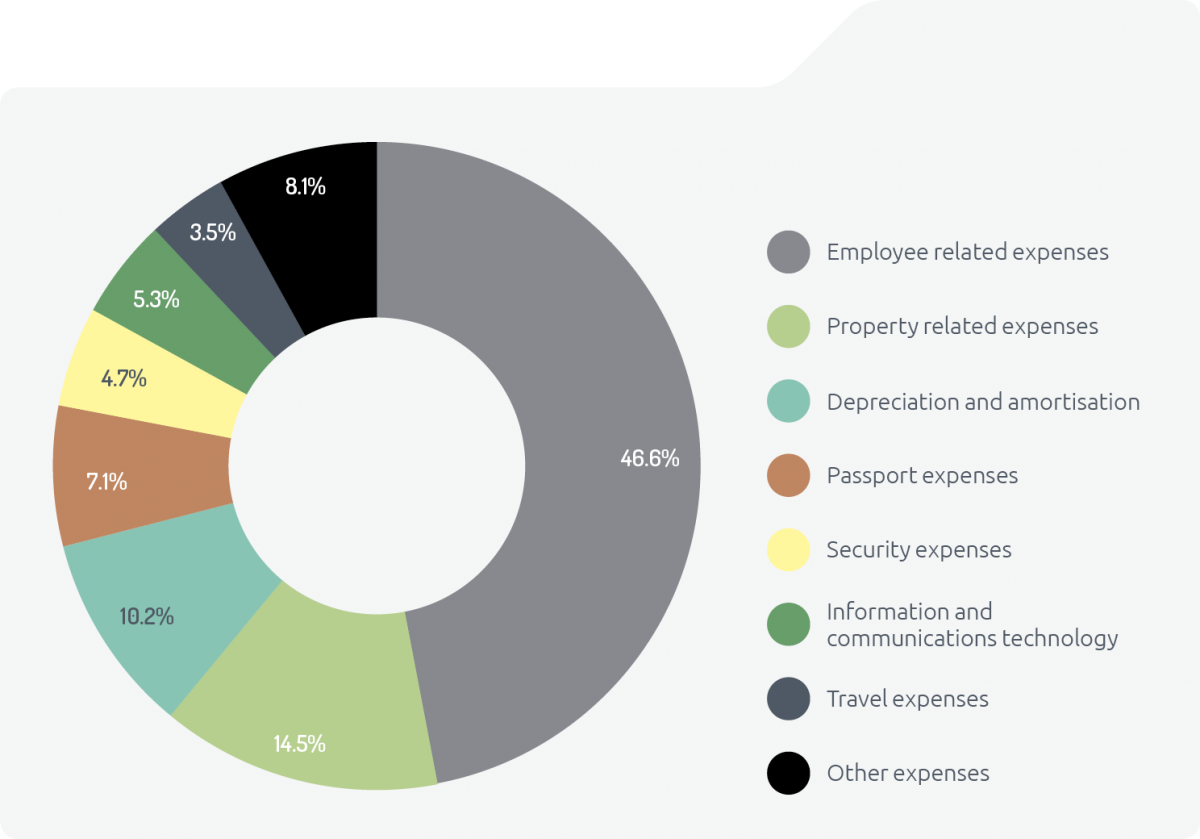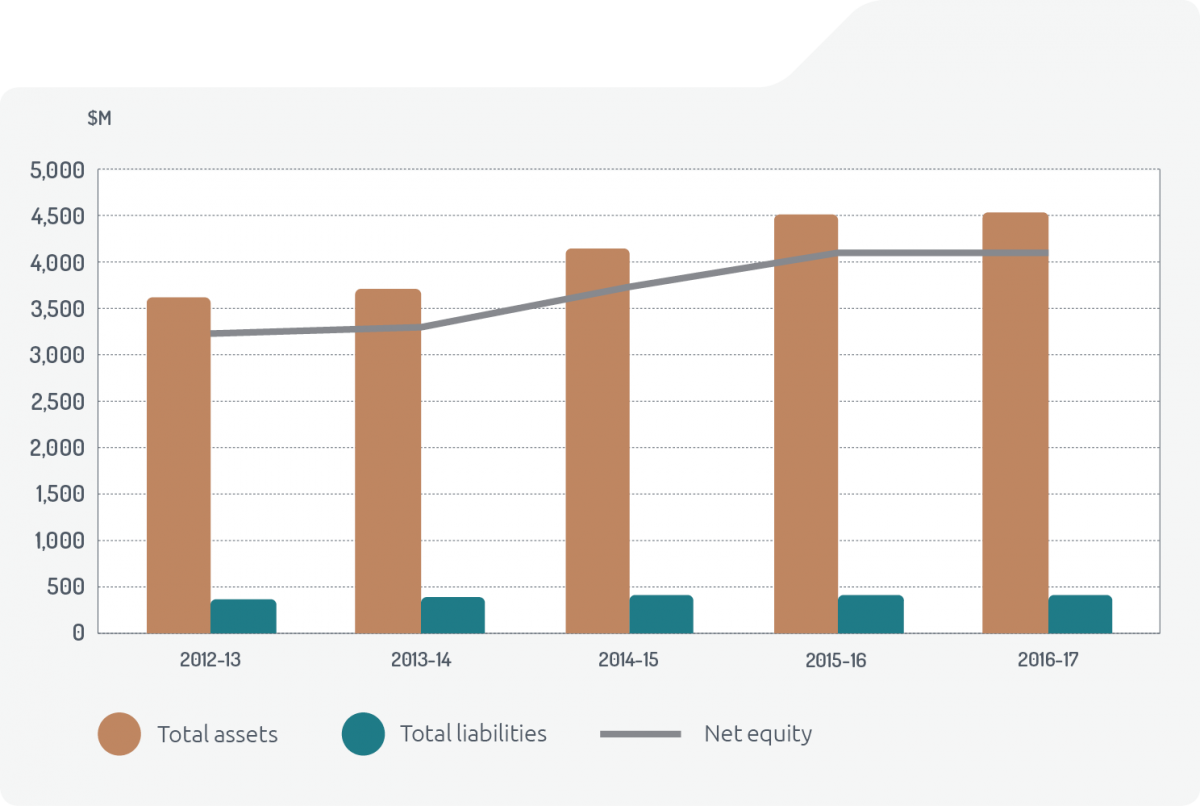Report on financial performance
Departmental operating result
The 2016–17 Budget included additional funding to: expand Australia’s diplomatic presence in China and Papua New Guinea; advance trade and investment opportunities for Australia; provide a greater level of consular assistance; promote Australia’s free trade agreements; contribute to regional and global stability, security and prosperity through investment in cybersecurity and combatting people smuggling; and strengthen our engagement in the
Indo–Pacific region.
The department demonstrated strong financial performance in 2016–17 with a surplus of $34.5 million before depreciation and amortisation. The financial statements reported an operating deficit of $136.8 million, including depreciation and amortisation expenses of $171.3 million.
See also Management of financial resources, p. 151-152, and the financial statements, p. 154-225.
Revenue
The department reported $1,534.9 million of revenue in the Statement of Comprehensive Income, comprised of:
- $1,383.0 million of appropriation revenue from government
- $149.62 million of own source income
- $2.2 million in gains including sale of assets.
This represents an increase of $16.5 million over 2015–16. The main factor contributing to this movement was the increased revenue for services provided to attached agencies at overseas posts, including rental revenue and IT-related services, for which the department also incurred increased expenses.
The department also reported $32.0 million of other comprehensive income arising from asset revaluation movements in the Statement of Financial Position. This is recorded directly as equity on the Statement of Financial Position and is not incorporated into the departmental operating result.
Expenses
The department reported $1,671.6 million of expenses in the Statement of Comprehensive Income. This represents an increase of $24.8 million over 2015–16.
The main factors contributing to the movement in 2016–17 were:
- increased depreciation and amortisation expenses of $23.6 million due to the increased value of the department’s asset holdings, and write-down and impairment costs after annual reviews of assets including assets under construction
- increases in grant expenses of $5.7 million due to temporary budget increases to fund additional external entity and non-aid discretionary grants for activities such as public diplomacy
- offset by a reduction in overall supplier expenses of $2.5 million due to cost savings on specific suppliers.
Assets and liabilities
The department reported a strong net asset position of $4,103.8 million in the Statement of Financial Position, with liabilities equating to less than 10 per cent of the total asset base. This is an increase of $13.0 million over 2015–16. The main factors contributing to the movement in 2016–17 were the increase in the value of physical and intangible non-financial assets due to new purchases and developments, and revaluation movements.
Administered program performance
2016–17 expenses administered by the department on behalf of Government were $4,703.0 million, an increase of $875.3 million over 2015–16. The majority of the increase was due to the movement in multilateral replenishments from the initial recognition of new pledges entered into in 2016–17 and the decrease in the valuation of multilateral subscriptions.
The aid program of $2,919.7 million, a decrease of $197.1 million from 2015–16, reflects the different development and economic trajectories across the region and continues the Government’s commitment to development in the Pacific. Recognising the economic growth trajectory of the Asia region, the aid program will focus on building partnerships to strengthen the private sector and underpin economic growth in Asian nations.
The department also managed a range of other administered programs. The majority of these expenses support Australian membership of critical international organisations ($135.8 million, a decrease of $6.7 million from 2016–17), advancing Australia’s foreign, trade and investment, development and security interests in international forums, and supporting the crucial work of global UN peacekeeping operations ($226.7 million, a decrease of $6.7 million from 2015–16). These costs have decreased due to the increase in value of the Australian dollar.
2016–17 income administered by the department on behalf of Government was $612.1 million, which is $1.0 million more than 2015–16. The movement is due predominantly to increases in passport, consular and other fees of $40.2 million from the legislative fee increase from 1 January 2017, and the increase in the number of passport applications together with the exchange rate gains of $2.4 million on re-measurement of overseas defined benefit schemes. This was offset by a decrease of $43.2 million from the valuation at year-end of multilateral replenishments.



